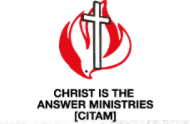Our history dates back to 1952 when John McBride a PAOC missionary arrived in Nairobi with the vision of establishing a church.

The first Sanctuary
The first church services were held at Rahimtulla Hall near Jevanjee Street. In September 1960, the Church moved to 28 Valley Road where the present CITAM Valley Road is located. The first sanctuary built by Rev. Richard Bombay was dedicated to God in October 1960. At that time the church was known as Pentecostal Evangelistic Centre (PEC).
The church was a small assembly of 20-30 members who were mainly European and Canadian expatriates. He built the first sanctuary that was dedicated to the Lord on 0ctober 22nd 1960. It was during the pastorate of Rev. Mervyn Thomas in the 1970s that the name of the church changed from Nairobi Evangelistic Centre to Nairobi Pentecostal Church (NPC). He is credited with the design of the church logo and his leadership in the writing of the first Church Constitution.
There was tremendous growth in the 1980’s during the pastorate of Rev. Roy Upton and Rev. Dennis White, who handed over the leadership of the church to Bishop Bonifes Adoyo, NPC’s first African leader. Bishop Adoyo led the church until 2010 when he retired and handed over leadership of the church to Rev. Dr. David Oginde. Bishop Oginde handed over the ministry’s leadership baton to the current Presiding Bishop, Rev. Calisto Odede in 2020.
From a small assembly with a morning service attendance of about 20 to 30 people, the church has experienced continuous growth to the currently 38 assemblies sitting about 45,000 people in Sunday service attendance.
As a church, CITAM is committed to a wholistic Gospel that impacts society in every sphere of life. Accordingly, apart from spiritual ministry to our congregations, the Church provides quality education through the CITAM Schools and PAC University. We also run the CITAM Children’s Center for the rehabilitation of street children, which has seen many disadvantaged children get quality life and education through to university. The Church is also involved in special community development programs among the underprivileged communities, especially in Northern Kenya. CITAM also provides value-based media services through Hope FM and Hope TV.
